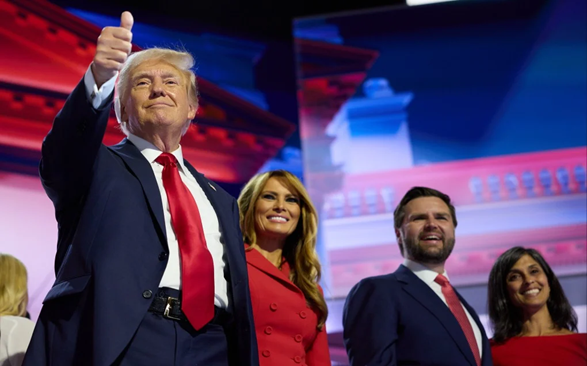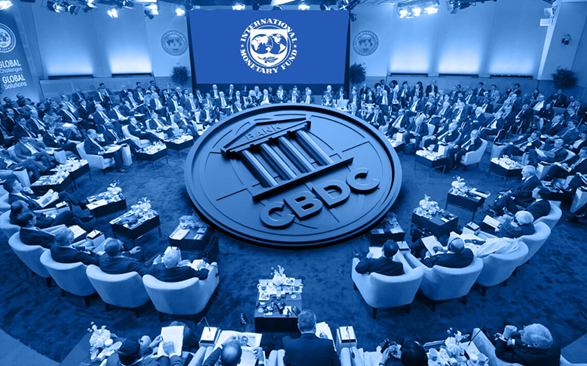by Jude Ayua
The Block’s 2025 Digital Assets Outlook Report highlights the crucial role the cryptocurrency industry played in the US 2024 elections, the regulatory setbacks in 2024, and the US crypto regulation outlook for 2025. The report noted, among other findings that: “[the] anticipation of a new pro-crypto administration provided clarity to DeFi projects and boosted institutional confidence in crypto as an asset class.” The reciprocal role of the crypto industry and the US 2024 election forms the key findings in the report.
Crypto community and US election
The cryptocurrency industry played a major role in the 2024 US presidential election by supporting the campaigns of pro-crypto candidates at different levels. The industry funded candidates’ campaigns with up to $135 million through strategic super political action committees (PACs). The pro-crypto group Fairshake emerged as the largest single-issue super PAC in history, raising over $200 million from major industry players, including Coinbase, Andreessen Horowitz, and Ripple. This aggressive campaign secured victories for all 48 candidates it supported, with a notable $40 million contribution aiding Bernie Moreno’s triumph over crypto-skeptic Senator Sherrod Brown in Ohio.
Read also: Donald Trump promises to make the U.S “crypto capital of the planet”.
Trump’s pro-crypto stance
President-elect Donald Trump’s pro-crypto stance also motivated support from the industry during the 2024 elections. Throughout his campaign, Trump appealed strongly to the US crypto community, promising to end what he called an “unlawful and un-American crackdown” on the industry. He accepted donations in crypto, raising over $4 million in digital assets and attended major events like Bitcoin 2024, where he secured $21 million in campaign funds. Trump also revealed personal holdings of up to $5 million in Ethereum-based assets and launched multiple NFT collections, generating over $7 million in profits. Trump’s backing by influential figures including the Winklevoss twins, who donated $2 million in bitcoin (BTC), and his campaign’s endorsement of the DeFi project “World Liberty Financial,” showed his commitment to the digital asset community.
US crypto regulatory setbacks and outlook for 2025
The past four years under Joe Biden’s administration proved highly unfavorable to the crypto industry. The approaches by major regulatory agencies in the US, Securities and Exchange Commision (US SEC), Commodity Futures Trading Commission (CFTC), and Federal Reserve, were strict, restrictive, and unclear, on the industry.
The US SEC under Chair Gary Gensler who believes there are “bad actors” in the industry, regulated majorly by enforcement, bringing up to 100 enforcement actions between 2021 and 2024. The Federal Reserve, under Chair Jerome Powell, maintained a more neutral stance on cryptocurrencies. However, the Fed’s former Vice Chair Michael Barr’s restrictive policies, limited the industry significantly.
Read also: Crypto.com withdraws SEC lawsuit after CEO’s meeting with Trump.
Trump’s victory marked a significant shift toward a more favorable regulatory approach for the US crypto industry. The transformative signs for the industry include the increased institutional participation, venture capital activity, and regulatory clarity expected from the incoming administration.
1. Policy reforms
The first series of reforms following Trump’s victory were evident in his initiatives such as establishing a national Bitcoin reserve, making the US a global hub for BTC mining, and key appointments. Promising to replace SEC Chair Gensler “on day one,” Trump appointed Paul Atkins as the new SEC Chair. Reports also signaled he is considering Brian Quintenz as the CFTC Chair. Another appointment of crypto-friendly figures is Elon Musk and Vivek Ramaswamy to head Trump’s Department of Government Efficiency—DOGE. Trump’s strong opposition to a US Central Bank Digital Currencies also aligns with industry preferences.
Read also: Bitcoin network and BTC asset: Projections for 2025.
2. Legislative Reforms and FIT21 Act
In terms of legislation, the incoming Trump’s administration is expected to advance bills like the FIT21 Act and Senator J.D. Vance’s crypto market structure reforms, which would empower the CFTC and ease the regulatory burden on digital asset firms. The FIT21 Act, passed in May 2024, seeks clearer regulation by granting oversight to the CFTC and defining crypto securities, while Senator J.D. Vance’s proposed legislation aims to further refine regulatory clarity with a more industry-friendly approach.
3. Increased institutional participation and market response
The market response to Trump’s election was positive, with Dogecoin surging from $0.15 in October 2024 to $0.48 in December. There has also been increased institutional involvement from companies like BlackRock and Fidelity. The crypto sector has expanded its lobbying presence in Washington, with major players like Coinbase, Ripple, and Andreessen Horowitz increasing their advocacy efforts, marking the industry’s growing influence in US policy making. The Trump administration’s plans to create a decentralized bitcoin reserve and ease stablecoin regulations could also drive institutional crypto adoption and market growth.
Image source: South China Morning Post
Jude Ayua is a policy analyst at CAB. A lawyer, Jude is an associate at Infusion Lawyers where he is a member of the Blockchain & Virtual Assets Group. He is also a member of the Policy & Regulations Committee of the Stakeholders in Blockchain Technology Association of Nigeria (SiBAN). Jude reports and writes on crypto policy and regulations. jude@infusionlawyers.com
Discover more from Crypto Asset Buyer
Subscribe to get the latest posts sent to your email.





